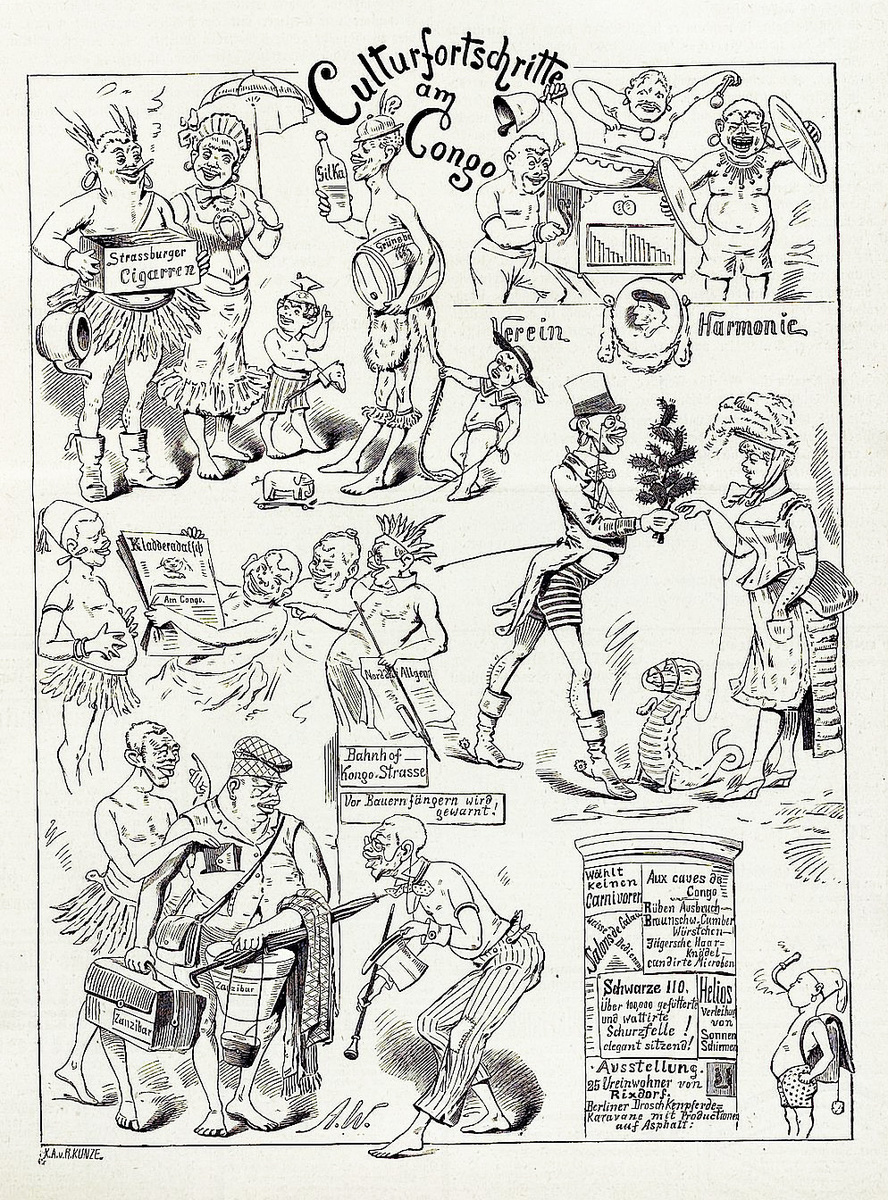Abstract
The Berlin Conference of 1884–85 marked the climax of the European
competition for territory in Africa. The “scramble for Africa” had led
to conflict among European powers, particularly between the British and
French in West Africa, the Portuguese and British in East Africa, and
the French and Belgians (under King Leopold II) in the Congo. Such
rivalry impelled Bismarck in late 1884 to convene a meeting of European
powers in Berlin. Britain, France, Germany, Portugal, and King Leopold
II negotiated their claims to African territory, which were then
formalized and mapped. Long before 1884, the representatives of Europe’s
colonial powers had been using the rhetoric of a “civilizing mission” to
legitimate their African claims.
In this cartoon, the satirical journal
Kladderadatsch mocks the “civilizing
mission” argument by suggesting that colonial subjects were not capable
of being “civilized” at all. The cartoon both draws on and reproduces
the trope of the Hosenneger (the
“pants-wearing Negro”)—a colonial subject who aspires to be civilized
but, because of fundamental inferiority, can only fall short. The
subject’s inability to understand European fashions was a central
feature of this trope. In this cartoon, we see a representative range of
everyday German habits transplanted into the Congo: hilarity ensues when
the Africans try to imitate Europeans. A gentleman (middle right),
wearing top hat and ridiculous striped trousers, presents a cactus to
the object of his affection; she wears women’s petticoats and walks her
crocodile on a leash. Three half-naked men at top right, rather than
playing classical instruments or singing in harmony, clash cymbals and
bang on drums in what appears to be a riotous performance. There is a
hint of criticism of colonizing practices in the cigars and alcohol
being exported to the Africans (at top left), as well as a hint of
colonial anxiety in the advertising column (bottom right): with an
absurd election cry (“Don’t vote for carnivores” – “Wählt keinen
Carnivoren”), the column presents the possibility of up-ended
hierarchies wherein a so-called
Völkerschau brings twenty-five Berlin
workers (Rixdorfers) for Africans to ogle, and the
Salons de Calau advertises that it
employs white waiters. The figures are caricatured in ways that presume
and present racial inferiority, thereby reinforcing notions of absolute
difference between colonizer and colonized that were still in flux at
this time. In this sense, the group of Africans reading
Kladderadatsch, in which this cartoon
appeared, are symbolically important: their grotesque features and lack
of clothing highlight just how far removed they are from Germans reading
the same publication.
